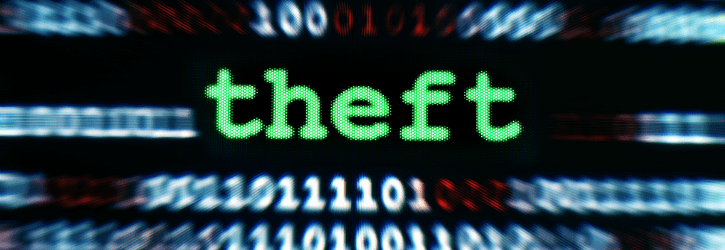
Welcome To The Data Leak Lawyers Blog
We focus on the latest news surrounding data breaches, leaks and hacks plus daily internet security articles.

We focus on the latest news surrounding data breaches, leaks and hacks plus daily internet security articles.

Victims of last year’s TV licensing data breach need to take care to avoid falling victim to phishing scams that are doing the rounds at the moment.
Victims of the TalkTalk data breach – one of the over 20 data breach actions we’re representing people in – were contacted after the breach. It appears that scammers had got hold of information that had been exposed in the breach. Victims of the TV licensing data breach should be wary of being contacted in the same way.
We know that phishing scams using the cover of TV licensing are doing the rounds. One victim lost £10,000.00 to scammers after they managed to convince him they were the real thing.

The monumental Collection #1 data breach that hit the headlines last week shows just how vulnerable people are to data breaches.
The incident, known as the Collection #1 breach, involved what many say is the biggest ever dump of hacked information on the internet. Hundreds of millions of email addresses and passwords that are thought to have been taken from a number of different hacks were published online. Criminals may have been using the information to break into people’s accounts for years.
The sheer volume of the Collection #1 data is a stark reminder as to just how vulnerable people are nowadays.

The Butlins data breach incident was one of many that hit the UK in 2018. As holidays are getting booked up in the post-Christmas period, data security may well be a concern for some.
We know from the recent Marriott data breach that passport data was compromised. The data that’s collected as part of booking holidays can be private and sensitive, and could leave victims at risk of fraudulent activity.
In the Butlins data breach of last year, it was personal information that appeared to have been exposed.

Fortnite hackers – some of whom are as young as 14 – are reportedly making a mint through the practice of “Fortnite Cracking”.
Fortnite, the free-to-play online game where users can make in-game purchases like skins for their characters, has opened up a whole new form of black market. Hackers are targeting accounts and stealing them to then resell them based on the value of the account.
Some of the hackers are reportedly making thousands of pounds from stealing the accounts of other users. Now, authorities are set to be stepping-up their efforts to stop this growing black market.

If you’ve been the victim of an Amazon data leak, we may be able to help you claim data leak compensation on a No Win, No Fee basis.
The most recent Amazon data leak took place last month, and there wasn’t a great deal of detail released about it. All that was said to victims was that some data had been exposed, and that victims don’t need to take any action. Although this may suggest that the leak was contained, people should always be vigilant. Companies should always ensure to warn people that they may need to take action.
One key element we do understand is that the most recent Amazon data leak reportedly stemmed from an API issue. This is important to know.

If you’ve yet to sign-up to claim Marriott data breach compensation, you can contact our team for help and advice today.
Some 500m people have been affected by the monumental Marriott data breach that was revealed at the end of 2018. Private and sensitive data has been exposed on a database Marriott’s Starwood reservation customers. The data appears to have been exposed since 2014.
Data compromised in the breach includes personal information, contact information and payment card data. This was yet another serious incident, and any victim who is eligible to claim compensation for the Marriott data breach can sign-up with us today.

The NASA data breach is a worrying one. An agency as prolific as NASA has been hit by a cyberattack. It makes us wonder – as we often do – is anyone really safe?
Our Data Leak Lawyers are involved in over 20 different data breach actions. These range from the Equifax data breach of 2017, to the British Airways data breach of this year. These are huge hacks that affected large organisations. Each time a new one comes along, we’re a mix of surprised and unsurprised that it has happened. On the one hand, these breaches are happening all the time, but on the other, the big-name breaches are worrying.
Surely there should never be such a thing as a NASA data breach. Yet it has happened…

As Gatwick Airport has been brought to a standstill over drones accessing the airfield, now is the time we need to talk about drone hacking.
We’ve highlighted this before, but given the news this week, it’s time to bring it up again. If cars can be hacked, so can drones. If smart tech in the home can be hacked, so can drones. If these things can be used to harm people – physically or financially – so can drones. They’re remote-controlled which means a huge door is there to be opened. There also incredibly easy to buy, and hackers have already demonstrated how easy it is to take control of another drone by hacking.
If there’s technology good enough to bring one of the UK’s biggest airports to a standstill, drone hacking is a serious concern.

iPhone app data breaches, leaks and hacks are on the rise as much as then use of apps continues to rise in everyday society.
Many people just assume that data on apps and phones is secure. Recent investigations and data breach incidents have told us a totally different story about the security of apps on phones.
People have a lot of reasons to worry. There have been a number of apps that have been comprised through poor security. Potentially millions of people are putting their private and sensitive data at risk every day.

A hefty fine has been issued over the 2016 Uber cyber attack as a result of security flaws that could have prevented the breach in the first place.
The data for some 2.7m Uber customers in the UK was compromised, as were the records for over 80,000 drivers. The fine, issued by the ICO (Information Commissioner’s Office), is small in comparison to potential GDPR fines. This is because the cyber attack took place in 2016 before the new rules came into force.
Had the cyber attack have happened this year, Uber could have faced fines in the millions.
EasyJet admits data of nine million hacked
British Airways data breach: How to claim up to £6,000 compensation
Are you owed £5,000 for the Virgin Media data breach?
Virgin Media faces £4.5 BILLION in compensation payouts
BA customers given final deadline to claim compensation for data breach
Shoppers slam Morrisons after loyalty points stolen
Half a million customers can sue BA over huge data breach
Lawyers accuse BA of 'swerving responsibility' for data breach
The biggest data breaches of 2020
Fill out our quick call back form below and we'll contact you when you're ready to talk to us.